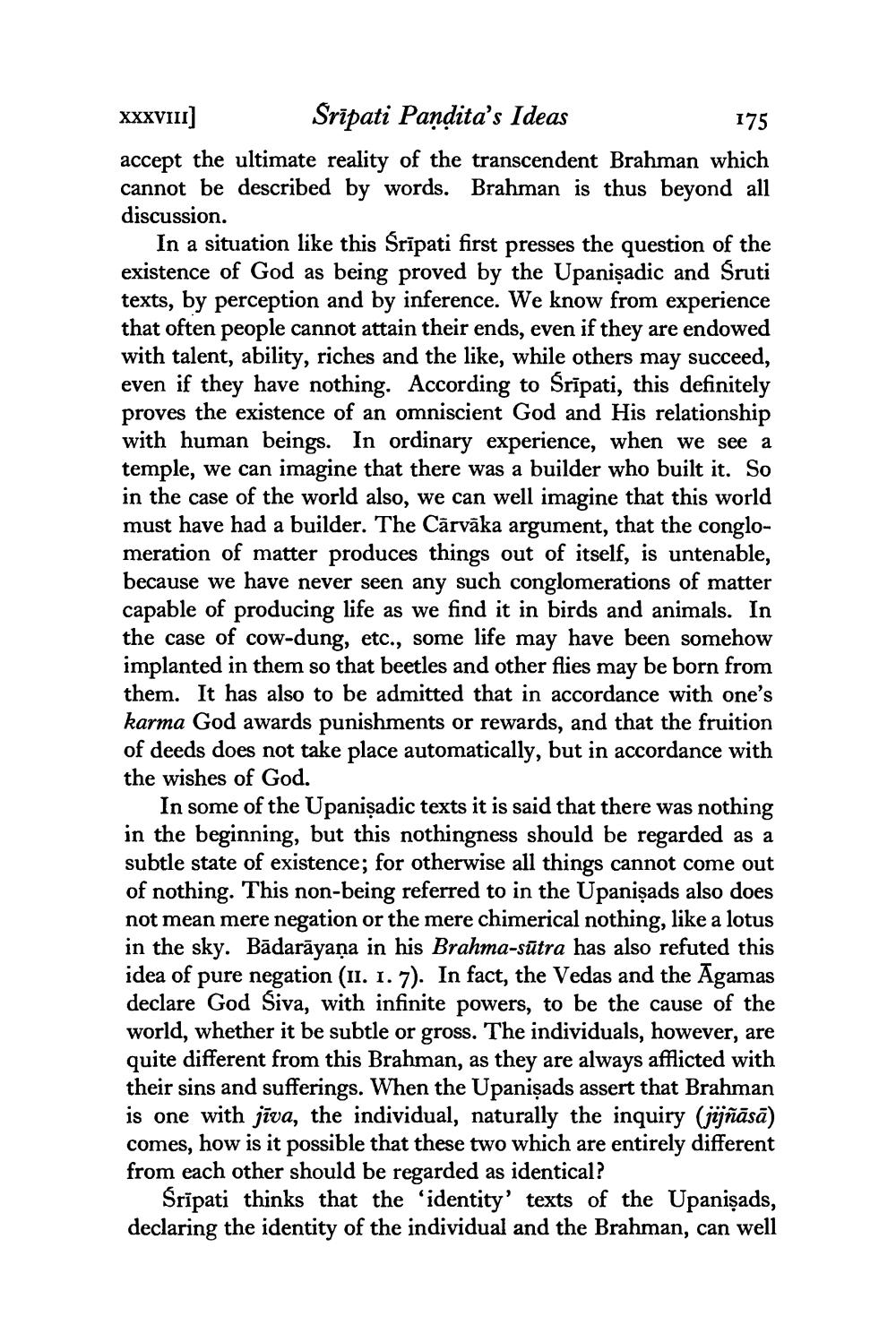________________
XXXVIII Srīpati Pandita's Ideas
175 accept the ultimate reality of the transcendent Brahman which cannot be described by words. Brahman is thus beyond all discussion.
In a situation like this Srīpati first presses the question of the existence of God as being proved by the Upanişadic and Sruti texts, by perception and by inference. We know from experience that often people cannot attain their ends, even if they are endowed with talent, ability, riches and the like, while others may succeed, even if they have nothing. According to Srīpati, this definitely proves the existence of an omniscient God and His relationship with human beings. In ordinary experience, when we see a temple, we can imagine that there was a builder who built it. So in the case of the world also, we can well imagine that this world must have had a builder. The Cārvāka argument, that the conglomeration of matter produces things out of itself, is untenable, because we have never seen any such conglomerations of matter capable of producing life as we find it in birds and animals. In the case of cow-dung, etc., some life may have been somehow implanted in them so that beetles and other flies may be born from them. It has also to be admitted that in accordance with one's karma God awards punishments or rewards, and that the fruition of deeds does not take place automatically, but in accordance with the wishes of God.
In some of the Upanişadic texts it is said that there was nothing in the beginning, but this nothingness should be regarded as a subtle state of existence; for otherwise all things cannot come out of nothing. This non-being referred to in the Upanişads also does not mean mere negation or the mere chimerical nothing, like a lotus in the sky. Bādarāyaṇa in his Brahma-sūtra has also refuted this idea of pure negation (11. 1. 7). In fact, the Vedas and the Agamas declare God Siva, with infinite powers, to be the cause of the world, whether it be subtle or gross. The individuals, however, are quite different from this Brahman, as they are always afflicted with their sins and sufferings. When the Upanişads assert that Brahman is one with jīva, the individual, naturally the inquiry (jijñāsā) comes, how is it possible that these two which are entirely different from each other should be regarded as identical?
Sripati thinks that the 'identity' texts of the Upanişads, declaring the identity of the individual and the Brahman, can well




